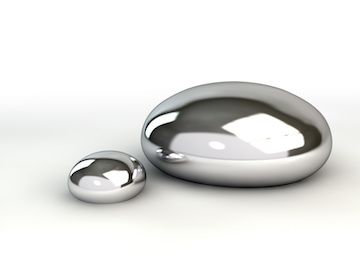Amalgam Separator Ruling: Where the Fight Currently Stands
With the future of the EPA's ruling requiring dentists to use amalgam separators up in the air, dentists are unsure of whether they should proceed with purchasing the expensive devices. Moreover, many dentists already purchased the devices before the Trump administration rolled back the ruling. Now, an environmental group has filed a lawsuit to try and stop the rollback, casting the ruling's fate in even further doubt.

Many dentists had already purchased mercury amalgam separators prior to the Trump administration's decision to roll back the EPA ruling.
In late 2016, the U.S. Environmental Protection Agency formally ruled to require the use of mercury amalgam separators in dental facilities across the country. The ruling was created with the intent of capturing harmful metal waste for safe disposal and recycling, but its future is now uncertain. Unfortunately, some dentists are already bearing the financial brunt of the ruling, which is no longer applicable.
The new federal rule on mercury amalgam separators was set to take effect on January 24, but before it could be implemented, the Trump administration issued a memorandum instructing federal agencies to roll back many Obama-era rules that had not yet been published. As a result, the EPA withdrew the rule from the Office of the Federal Register.
Before it was withdrawn, the American Dental Association embraced the ruling, encouraging dentists to follow best management practices for mercury amalgam waste handling and disposal. Unfortunately for many dentists, the roll back has already cost them hundreds, if not thousands, of dollars due to the purchase of equipment that now might be unnecessary. Mercury amalgam separators can cost anywhere from $500 to more than $1,000 each, depending on the amount of dental waste they are designed to process.
One lawsuit has already been filed against the EPA to try to save the ruling. The National Resources Defense Council (NRDC) alleges the EPA broke the law by withdrawing the rule without public notice or an opportunity for members of the public to comment. The NRDC also argues that the EPA cannot withdraw the mercury protection ruling because the ruling was final, regardless of the Trump administration’s instructions.
Aaron Colangelo, litigation director of the NRDC, said, “The Trump White House ordered the EPA and other agencies to violate the law. That puts Americans at greater risk of exposure to this dangerous neurotoxin, which can do harm even in tiny amounts. EPA’s withdrawal of the mercury rule is not just illegal, but senseless. The rule imposes minimal burden, drew widespread praise from dental providers and benefits public health and the environment.”
According to the EPA, compliance with the mercury protection rule could reduce the discharge of mercury by 5.1 tons each year, in addition to reducing the amount of other metal waste by 5.3 tons annually. The agency also noted most of the mercury discharged from dental facilities is subsequently released back into the environment, and that compliance with the ruling would have been practical and affordable for dental practitioners.
ACTIVA BioACTIVE Bulk Flow Marks Pulpdent’s First Major Product Release in 4 Years
December 12th 2024Next-generation bulk-fill dental restorative raises the standard of care for bulk-fill procedures by providing natural remineralization support, while also overcoming current bulk-fill limitations.